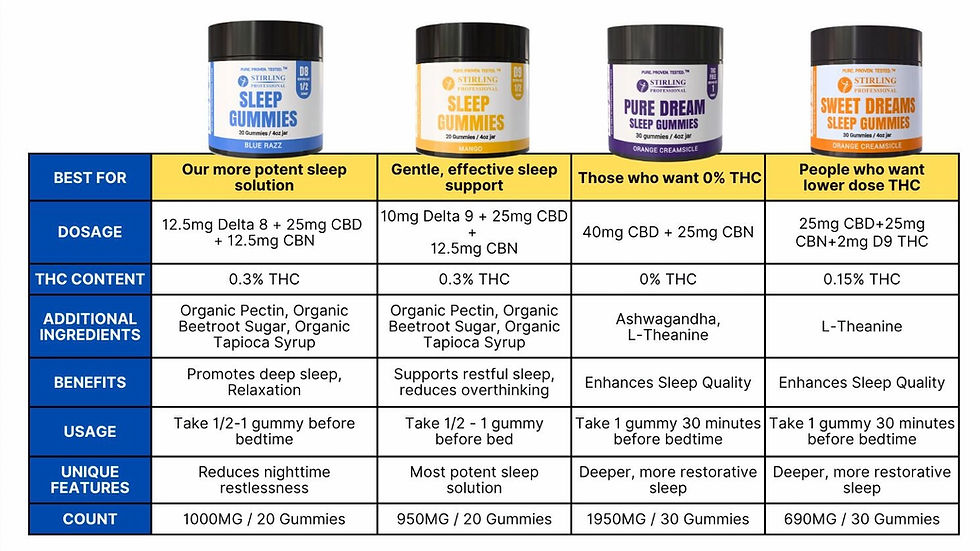12 Health Benefits of DHA (Docosahexaenoic Acid) Omega 3
- drlindaberry
- Dec 2, 2020
- 3 min read
Docosahexaenoic acid, or DHA, is a type of omega-3 fat. Like the omega-3 fat eicosapentaenoic acid (EPA), DHA is plentiful in oily fish, such as salmon and anchovies. Your body can only make a small amount of DHA from other fatty acids, so you need to consume it directly from food or a supplement. Together, DHA and EPA may help reduce inflammation and your risk of chronic diseases, such as heart disease. On its own, DHA supports brain function and eye health. You can find DHA Omega 3 supplements on my Fullscript dispensary page and receive a 10% discount plus free shipping on orders over $50. I recommend the Nordic Naturals Pro Omega 2000.
Here are 12 science-backed health benefits of DHA.
To learn more and for full study data visit www.healthline.com
Reduces Heart Disease Risk
Though both DHA and EPA support heart health, DHA may be more effective at increasing your omega-3 index, decreasing triglycerides and improving your cholesterol profile.
May Improve ADHD
Children and adults with ADHD commonly have lower blood levels of DHA, which plays a key role in brain function. The majority of studies testing the effects of DHA supplements in children with ADHD have shown benefits to behavior or attention.
Reduces The Risk Of Early Pre-Term Birth
Taking 600–800 mg of DHA daily during pregnancy could significantly reduce your risk of early preterm birth. Bear in mind that some prenatal vitamins don’t contain DHA.
Fights Inflammation
Increasing DHA intake may help reduce inflammation and balance the excess of inflammatory omega-6 fats typical in Western diets. Therefore, DHA may help counteract symptoms of conditions like rheumatoid arthritis and heart disease.
Supports Muscle Recovery After Exercise
DHA — alone or combined with EPA — may help reduce muscle soreness and limitations in range of motion after exercise, partly due to its anti-inflammatory effects.
Helps Some Eye Conditions
DHA may improve certain eye conditions, including dry eyes and diabetic retinopathy. It may also decrease contact lens discomfort and reduce eye pressure, a risk factor for glaucoma.
May Reduce Your Risk Of Certain Cancers
Higher intake of fish oils such as DHA has been linked to a lower risk of several cancers, including colorectal, breast and prostate cancer. Preliminary studies suggest that DHA may improve chemotherapy benefits, but more research is needed.
May Help Slow Or Prevent Alzheimer's Disease
DHA is important for brain function, and higher omega-3 intake may reduce your risk of types of dementia like Alzheimer’s. It’s unclear whether DHA can slow Alzheimer’s progression, but success may be more likely if you begin supplementing early.
Lowers Blood Pressure And Helps Circulation
DHA may support the proper functioning of your arteries, improve blood flow and lower blood pressure. This may help reduce heart attack and stroke risk.
Aids Normal Brain And Eye Development In Babies
DHA is important for a baby’s brain and visual development. A mom’s DHA is passed to her infant during pregnancy — especially during the third trimester — as well as through breast milk. Babies born preterm may benefit from supplemental DHA.
Supports Men's Reproductive Health
Without enough DHA, sperm health and motility are compromised, which can reduce a man’s fertility.
May Help Protect Mental Health
Adequate DHA and EPA levels are linked to a reduced risk of depression. These fats support serotonin — a nerve messenger that helps balance your mood. Plus, they have anti-inflammatory effects on nerve cells, which may reduce depression risk as well.
What Does of DHA Do You Need?
For general good health, aim for 250–500 mg daily of DHA plus EPA from fish, supplements or both. For specific health concerns, higher doses may be used with your doctor’s guidance.
Source: Healthline.com




Comments